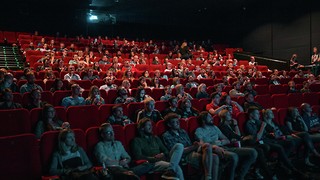Please, no more unsung heroes
Thomas Fraser expresses his frustration at newspapers’ casual use of words
To say that the language used by the media is clichéd is itself a cliché. (I suppose it’s also clichéd to begin an article about cliché by saying it’s cliché to talk about cliché. Touché?) What must be properly investigated, however, are the damaging effects of a depressing wearing away of language, perpetrated by our mass media’s use of a stock set of words – especially when they address the more serious and delicate subjects.
One of the most overused words in the repertoire of newspaper jargon is ‘hero’. “Army hero killed in Afghanistan”; “WW1 hero’s letters found after 90 years – and they make the war sound just lovely”; “The making and breaking of an accidental hero”; “Hat-trick hero Johnson lauds Fulham effort as QPR are put to the sword”: the word is mostly used in a kind of imperative form where we are instructed to uncritically interpret these people as heroes. That there is a female version of the word is forgotten: any man or woman who wears an army uniform and dies fighting a foreign foe in a sandy, alien territory is automatically a ‘hero’. Soldiers are professionals, who have chosen to put their lives at stake – their professionalism in the field of conflict is a given.
But it is patronizing to conflate this professionalism with wayward heroism. Newspapers’ overuse of the word ‘hero’ has more or less anaesthetized any of the power it once had. Who can say that when they pick up the morning papers and read about the ‘heroic’ death of a soldier, they don’t feel numb to the word? Is a ‘hat-trick hero’ in a football match different to a British soldier who died fighting the Taliban?
If newspaper editors were actually serious about the word, they wouldn’t call Premier League strikers ‘heroes’. If they had any proper feeling for the word, they would get rid of it altogether. If only it were a cliché that tabloid editors had any intelligent sensitivity to language.
In order to gauge fully the implications of the media’s use of cliché, it helps to remind ourselves of the etymology of the word. ‘Cliché’ comes from the French clicher, which means ‘to stereotype’. The careless use of words like ‘hero’ stereotypes the seriousness of their meanings, making readers immune to their various potencies. The same is true of the word ‘paedophile’, whose overuse has worn away the horror it should instil. In fact, not content with turning ‘paedophile’ into a cliché, tabloids have brought the word into common usage as the casual colloquialism, ‘paedo’.
The witless and dangerous barrage of stock expressionism from the media is perhaps symptomatic of the nature of today’s news flow. Information is now so fast moving that journalists end up grasping for clichés so that they can keep up with everything.
We have all been guilty of sinking to the depths of mediocre and formulaic language (especially when a deadline is looming).
Even Martin Amis and Ian McEwan do it (although according to McEwan, the two novelists share each other’s manuscripts and scribble ‘FLF’ (flickering log fire) in the margin where they spot a cliché). It is when national newspapers monopolize serious words that the problem becomes important. ‘Hero’ and its cognates are words that should not be carelessly thrown about in headlines, let alone in articles about eleven-a-side ball games.
 News / Tompkins Table 2025: Trinity widens gap on Christ’s19 August 2025
News / Tompkins Table 2025: Trinity widens gap on Christ’s19 August 2025 Comment / A plague on your new-build houses18 August 2025
Comment / A plague on your new-build houses18 August 2025 News / Pro-Palestine activists spray-paint Barclays Eagle Labs18 August 2025
News / Pro-Palestine activists spray-paint Barclays Eagle Labs18 August 2025 News / Pro-Palestine activists urge new Chancellor to ‘condemn Israel’20 August 2025
News / Pro-Palestine activists urge new Chancellor to ‘condemn Israel’20 August 2025 News / Trinity sells O2 Arena lease for £90m12 August 2025
News / Trinity sells O2 Arena lease for £90m12 August 2025









